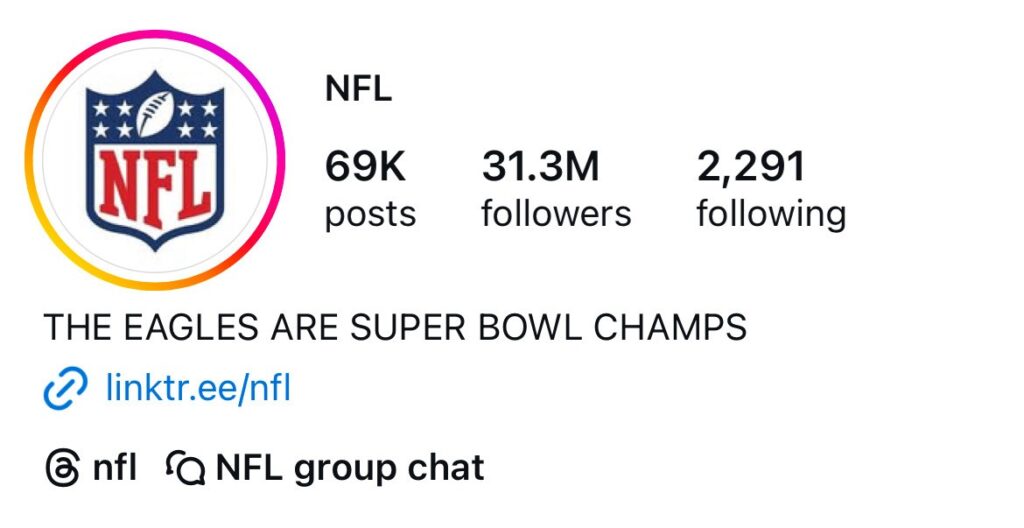How social media has impacted the NFL
By Taya Cowley

By Taya Cowley, staff writer
Social Media has become ever-present in everybody’s lives. It holds influencer careers and has helped build businesses. The NFL is no exception to this transformation.
From fan engagement and player influence to instant news and controversies, social media has reshaped how the league operates and how fans interact with the sport.
Platforms like Twitter, Instagram, and TikTok allow teams, players, and the league to connect directly with fans. Teams use creative content, such as schedule release videos and behind-the-scenes footage, to keep audiences entertained even in the off-season. Social media has also provided players with a platform to build their brands.
Star athletes like Patrick Mahomes and Jalen Hurts use these platforms to share highlights, training routines, and personal milestones, making them more relatable and accessible to fans. This direct interaction fosters a stronger connection between the NFL and its audience, ultimately increasing viewership and loyalty.
Social media has also shifted the balance of power in the NFL, giving players more control over their self-narratives. Previously, news about trades, contract disputes, or controversies was filtered through traditional media outlets. Now, players can break the news, as seen when Odell Beckham Jr. used Twitter to hint at trade rumors or when Lamar Jackson publicly requested a trade via social media.
This direct access has also made NFL news a 24/7 cycle, with updates spreading instantly. While this keeps fans informed, it also fuels speculation and drama, as social media often amplifies rumors before facts are confirmed.
Despite its many benefits, social media has also brought challenges to the NFL, particularly regarding controversies and public scrutiny. Players, coaches, and executives are constantly observed, and a single misstep can lead to widespread backlash. For example, controversial tweets or statements can spark debates, damaging reputations and careers.
The league itself has faced criticism on social media over issues such as officiating decisions, player safety, and political protests. The ability for fans to instantly react and organize online has forced the NFL to be more responsive to public opinion, sometimes leading to policy changes or disciplinary actions.
Another significant impact of social media on the NFL is the growth of fantasy football and sports betting. Social media platforms provide real-time updates on player performances, injuries, and betting odds, making it easier for fans to stay engaged. Fantasy football leagues thrive on social media, where users discuss trades, share strategies, and react to real-time performances.
Finally, social media has contributed to the rise of viral moments and memes that add a new layer of entertainment to the sport. From humorous sideline reactions to game-winning plays, social media ensures that iconic moments spread instantly. Memes like “Crying Jordan” or clips of animated coaching rants turn profound moments into internet phenomena, making the NFL a central part of pop culture.
This virality keeps fans entertained and extends the league’s reach to younger audiences who engage with sports through digital content rather than traditional broadcasts.
As the NFL adapts to the digital age, how it manages social media’s benefits and challenges will significantly influence the future of professional football.




